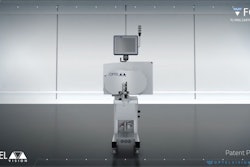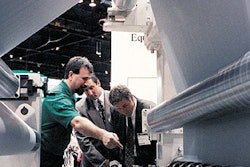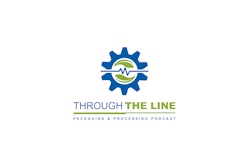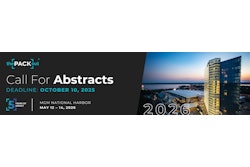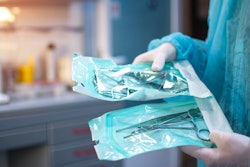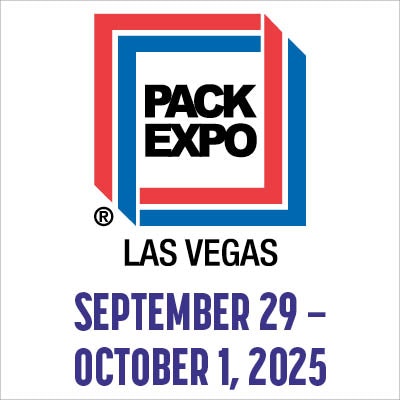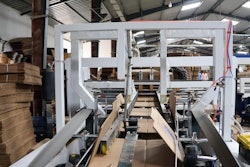On Aug. 20 - 22, 2008, Healthcare Packaging editor Jim Butschli visited four packaging-centric firms in Ireland: The Perigord Group, Dublin; Sealed Air Nelipak, Galway; Contech Ireland, Galway; and SteriPack Medical, Clara.
For years, Ireland has been known for its muscular pharmaceutical market, which is particularly strong along the country's Eastern coast. Driving west through the beautiful farming community through Clara, then to Galway along the Atlantic Ocean, it becomes evident through small industrial parks that the medical device community also packs quite a punch. Between medical devices, pharmaceuticals, and the growing area of biopharmaceuticals, the future looks bullish for the sector's packaging community.
Whereas Puerto Rico faces economic challenges now that tax advantages have washed away, it appears as if Ireland's government will continue to provide such investments to encourage foreign investment in the country, and to assist indigenous business looking to grow internationally.
Reciprocal visits help both packagers and suppliers
What follows are some insights gleaned from Healthcare Packaging's visit to these companies:
"There's been a softening in the economy recently, but growth looks promising for us, particularly in the films side of our business," says Sean Egan, Nelipak's business development manager. The overall company's "basket of services" includes contract packaging and assembly, validation, design, prototyping, automation, as well as rigid and flexible plastics, trays (as shown in the accompanying photo), cartons, and labels.
"We don't see ourselves as much as a supplier any more, but as a resource," he says. One example of this is in the growing biomedical area, in which Egan explains that Nelipak will focus on understanding the impact of regulatory issues as they relate to such products. The company will be able to employ that knowledge to assist customers, as opposed to relying on customers to advise Nelipak on such regulations.
For years, presenters at pharmaceutical and medical device packaging events have spoken of partnering with suppliers. Nelipak and some of its customers are taking partnering to a deeper level. "About sixty percent of Nelipak employees have gone to customer sites for visits to learn more about their operations," says Egan. "Customers love this approach because they realize we care about their process-we're not just about providing them with a product. We also invite customers to see our plant and view our site. Here, they can see training records of our employees and learn their skill competency levels," says Egan.
Packaging battles heart disease, cancer
Not far from Nelipak, Contech Ireland's facilities are in another industrial park that's peppered with medical device manufacturer facilities. Medtronic, for example, is said to employ more than 2,000 people at multiple buildings within the town of Galway. Contech provides single-use high-density polyethylene and larger-diameter polypropylene carrier tubes, used by hospitals in cardiovascular procedures. "These are high-volume dispensers that help carry stents and balloons, fluid delivery systems, and accessory pouches," notes Debra O'Loughlin, managing director, and Lorraine Eagleton, sales and marketing manager.
O'Loughlin points out that costs continue to be a key issue for Contech customers, as do regulatory matters. A growing business area for Contech, which also provides assembly and contract services, is in oncology, where its winged infusion sets are used for delivery of chemotherapy and pain relief treatments. At the company's 35,000 sq-ft facility, Contech operators semi-automatically assemble products in three Class 100,000 clean rooms and one Class 10,000 clean room.
Contech just accepted delivery of a tube extrusion machine from ASG Medicalthat it expects will cut lead times to two to three weeks, down from four to six weeks, which will benefit customers and drive down costs. Also important to Contech's operation are a sealer, believed to be from Riverside Medical Packaging, and a UV table used to cure adhesives, reportedly supplied by Loctite.
Advanced medical device bag introduced
At SteriPack Medical, business has led to continued expansion of its Clara manufacturing facility. Sales director Barry Moore demonstrated a customer's new medical device package, which could not yet be discussed, and the flexible structure SteriPack provides for the thermoformed blister pack.
The company is launching an advanced version of its medical Steribag that includes DuPont Tyvek sealed to linear low-density polyethylene film. SteriPack describes the Steribag as similar to a conventional header bag, but combines both Tyvek and film in the header strip, offering a peelable structure with breathability and economic savings. Designed for large or bulky items, as well as surgical kits and drapes, the Steribag is ethylene oxide- and gamma-sterilizable. Steribags are produced in a Class 100,000 clean room.
Managing global packaging artwork
Some of the world's most recognizable generic pharmaceutical product manufacturers are now employing the GL-AMS (Global Artwork Management System) from The Perigord Group.
"The pharmaceutical sector represents between 40 and 50 percent of our business today, and that figure continues to grow," says Alan Leamy, the company's managing director. GL-AMS was introduced in the U.S. during Interphex, held earlier this year in Philadelphia. GL-AMS creates a central online storage area that provides a single point of proof for artwork used for packaging materials such as cartons, labels, inserts, and leaflets, allowing users to develop consistent branding across multiple stock-keeping units and at multiple global locations. This can help speed product to market and can help companies with verification tasks.
Ireland's life sciences sector
Ireland's Industrial Development Agency (www.idaireland.com), a governmental body that helps secure new investment from overseas, notes that foreign investment in Ireland's pharmaceutical sector began more than 40 years ago, with Bristol-Myers Squibb being the first to locate in the country in 1964.
IDA's Web site says, "The pharmaceutical sector makes an enormous contribution to the generation of wealth in the Irish economy and has experienced significant growth in recent years as evidenced by the following statistics:
• €29.7 billion of exports (40% of total manufacturing exports)
• Currently 13 of the top 15 companies in the world have substantial operations in Ireland
•12 out of 25 of the world's top-selling drugs are produced in Ireland, including Lipitor and Zocor. Products are manufactured for global markets.
In late April, Enterprise Ireland noted that the minister for Enterprise Trade and Employment, Micheál Martin, had announced the establishment of Fountain Healthcare Partners, a Dublin-based life science venture capital fund established under the Enterprise Ireland Seed and Venture Capital Scheme 2007-2012. The Fund will invest in specialty pharmaceutical, biotechnology, medical device, and diagnostics companies.
--By Jim Butschli, Editor
For years, Ireland has been known for its muscular pharmaceutical market, which is particularly strong along the country's Eastern coast. Driving west through the beautiful farming community through Clara, then to Galway along the Atlantic Ocean, it becomes evident through small industrial parks that the medical device community also packs quite a punch. Between medical devices, pharmaceuticals, and the growing area of biopharmaceuticals, the future looks bullish for the sector's packaging community.
Whereas Puerto Rico faces economic challenges now that tax advantages have washed away, it appears as if Ireland's government will continue to provide such investments to encourage foreign investment in the country, and to assist indigenous business looking to grow internationally.
Reciprocal visits help both packagers and suppliers
What follows are some insights gleaned from Healthcare Packaging's visit to these companies:
"There's been a softening in the economy recently, but growth looks promising for us, particularly in the films side of our business," says Sean Egan, Nelipak's business development manager. The overall company's "basket of services" includes contract packaging and assembly, validation, design, prototyping, automation, as well as rigid and flexible plastics, trays (as shown in the accompanying photo), cartons, and labels.
"We don't see ourselves as much as a supplier any more, but as a resource," he says. One example of this is in the growing biomedical area, in which Egan explains that Nelipak will focus on understanding the impact of regulatory issues as they relate to such products. The company will be able to employ that knowledge to assist customers, as opposed to relying on customers to advise Nelipak on such regulations.
For years, presenters at pharmaceutical and medical device packaging events have spoken of partnering with suppliers. Nelipak and some of its customers are taking partnering to a deeper level. "About sixty percent of Nelipak employees have gone to customer sites for visits to learn more about their operations," says Egan. "Customers love this approach because they realize we care about their process-we're not just about providing them with a product. We also invite customers to see our plant and view our site. Here, they can see training records of our employees and learn their skill competency levels," says Egan.
Packaging battles heart disease, cancer
Not far from Nelipak, Contech Ireland's facilities are in another industrial park that's peppered with medical device manufacturer facilities. Medtronic, for example, is said to employ more than 2,000 people at multiple buildings within the town of Galway. Contech provides single-use high-density polyethylene and larger-diameter polypropylene carrier tubes, used by hospitals in cardiovascular procedures. "These are high-volume dispensers that help carry stents and balloons, fluid delivery systems, and accessory pouches," notes Debra O'Loughlin, managing director, and Lorraine Eagleton, sales and marketing manager.
O'Loughlin points out that costs continue to be a key issue for Contech customers, as do regulatory matters. A growing business area for Contech, which also provides assembly and contract services, is in oncology, where its winged infusion sets are used for delivery of chemotherapy and pain relief treatments. At the company's 35,000 sq-ft facility, Contech operators semi-automatically assemble products in three Class 100,000 clean rooms and one Class 10,000 clean room.
Contech just accepted delivery of a tube extrusion machine from ASG Medicalthat it expects will cut lead times to two to three weeks, down from four to six weeks, which will benefit customers and drive down costs. Also important to Contech's operation are a sealer, believed to be from Riverside Medical Packaging, and a UV table used to cure adhesives, reportedly supplied by Loctite.
Advanced medical device bag introduced
At SteriPack Medical, business has led to continued expansion of its Clara manufacturing facility. Sales director Barry Moore demonstrated a customer's new medical device package, which could not yet be discussed, and the flexible structure SteriPack provides for the thermoformed blister pack.
The company is launching an advanced version of its medical Steribag that includes DuPont Tyvek sealed to linear low-density polyethylene film. SteriPack describes the Steribag as similar to a conventional header bag, but combines both Tyvek and film in the header strip, offering a peelable structure with breathability and economic savings. Designed for large or bulky items, as well as surgical kits and drapes, the Steribag is ethylene oxide- and gamma-sterilizable. Steribags are produced in a Class 100,000 clean room.
Managing global packaging artwork
Some of the world's most recognizable generic pharmaceutical product manufacturers are now employing the GL-AMS (Global Artwork Management System) from The Perigord Group.
"The pharmaceutical sector represents between 40 and 50 percent of our business today, and that figure continues to grow," says Alan Leamy, the company's managing director. GL-AMS was introduced in the U.S. during Interphex, held earlier this year in Philadelphia. GL-AMS creates a central online storage area that provides a single point of proof for artwork used for packaging materials such as cartons, labels, inserts, and leaflets, allowing users to develop consistent branding across multiple stock-keeping units and at multiple global locations. This can help speed product to market and can help companies with verification tasks.
Ireland's life sciences sector
Ireland's Industrial Development Agency (www.idaireland.com), a governmental body that helps secure new investment from overseas, notes that foreign investment in Ireland's pharmaceutical sector began more than 40 years ago, with Bristol-Myers Squibb being the first to locate in the country in 1964.
IDA's Web site says, "The pharmaceutical sector makes an enormous contribution to the generation of wealth in the Irish economy and has experienced significant growth in recent years as evidenced by the following statistics:
• €29.7 billion of exports (40% of total manufacturing exports)
• Currently 13 of the top 15 companies in the world have substantial operations in Ireland
•12 out of 25 of the world's top-selling drugs are produced in Ireland, including Lipitor and Zocor. Products are manufactured for global markets.
In late April, Enterprise Ireland noted that the minister for Enterprise Trade and Employment, Micheál Martin, had announced the establishment of Fountain Healthcare Partners, a Dublin-based life science venture capital fund established under the Enterprise Ireland Seed and Venture Capital Scheme 2007-2012. The Fund will invest in specialty pharmaceutical, biotechnology, medical device, and diagnostics companies.
--By Jim Butschli, Editor



